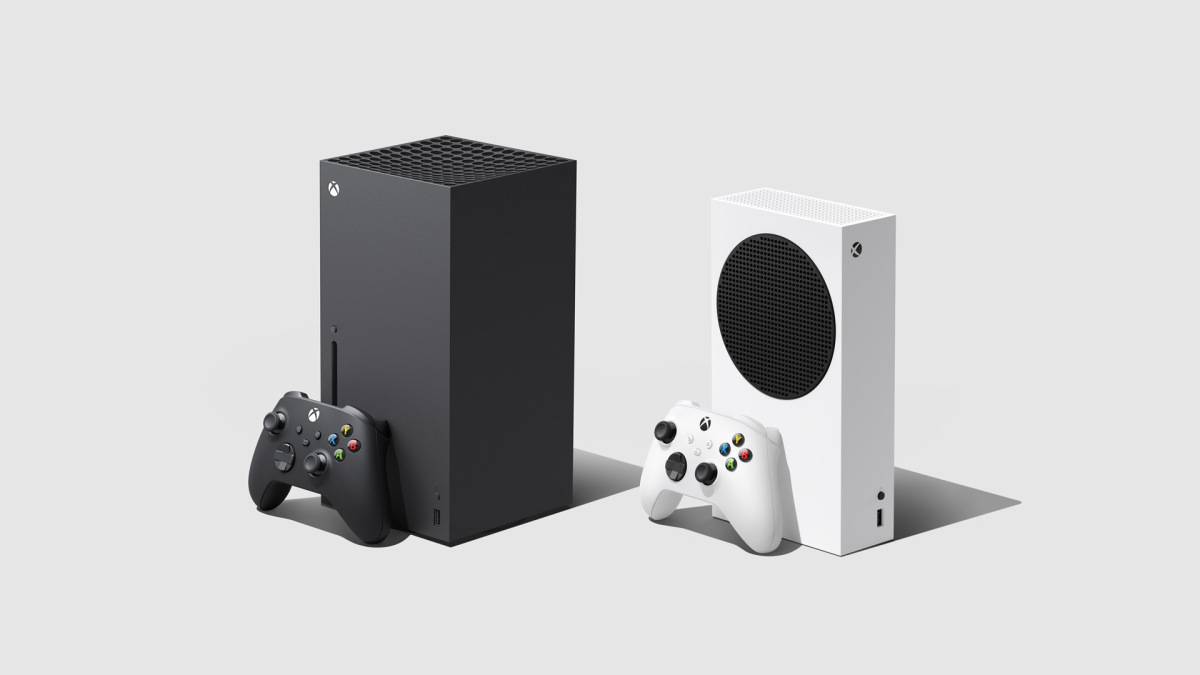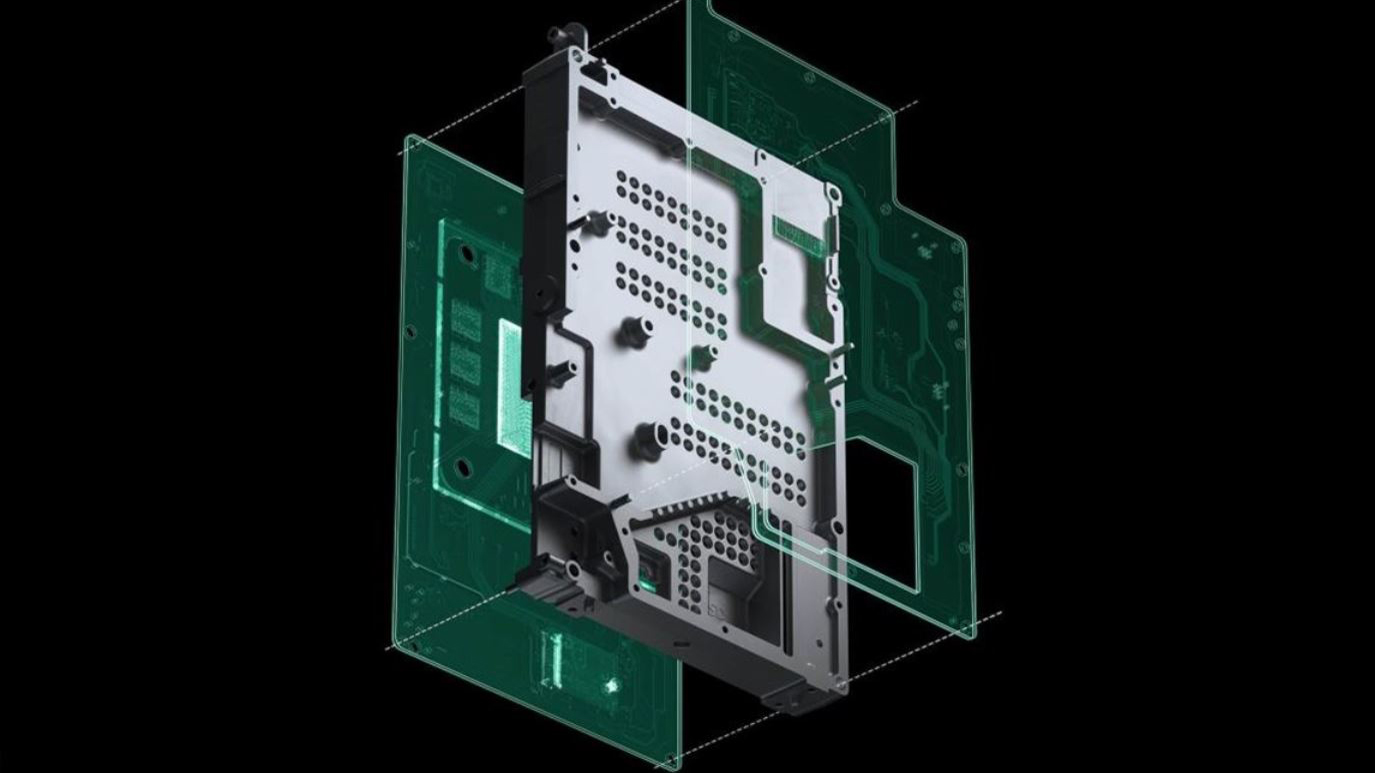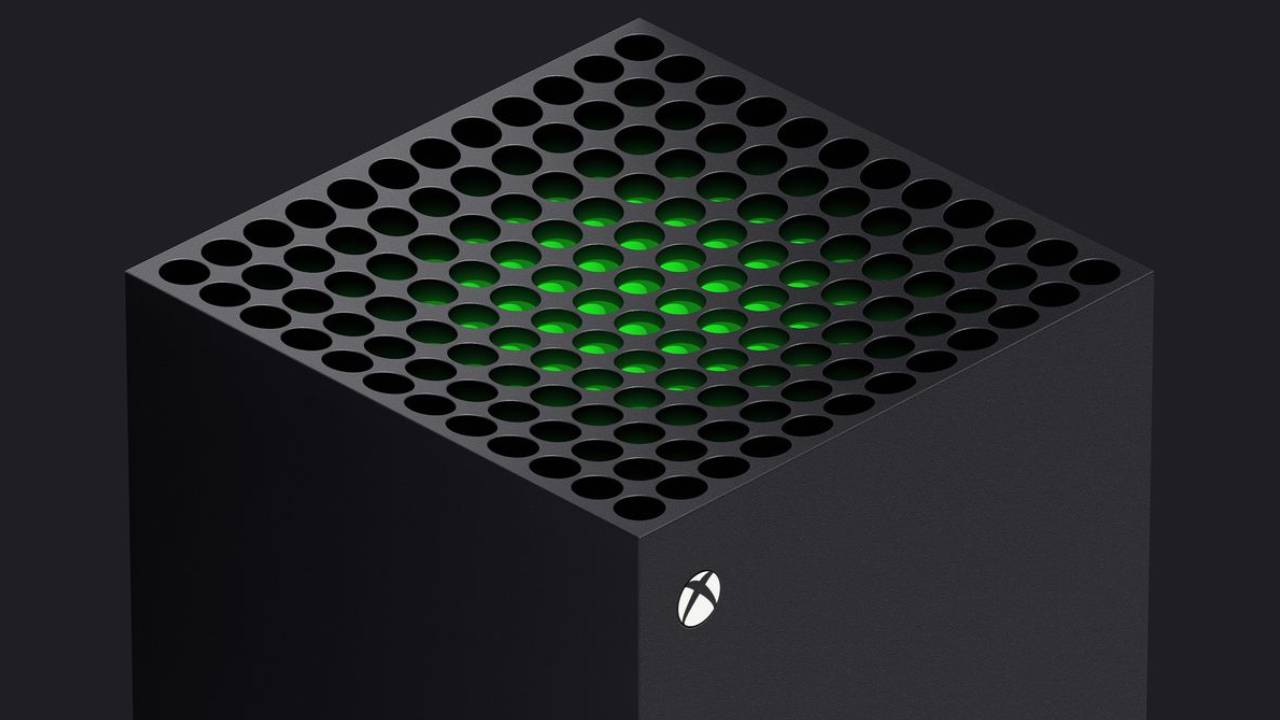Xbox Series X vs Xbox Series S will become an increasingly common comparison now that Microsoft's next-gen consoles are almost here. It's important to know the difference, too, as which one you buy will largely depend on the capabilities you need from your next-gen machine and your budget. Do you want all the bells and whistles that the Xbox Series X can provide, or do you want a cheaper, yet powerful alternative that might not do everything, but it does exactly what you need? Let's put the two consoles head-to-head and find out which Xbox is right for you.
Follow our Xbox Series X pre-order and Xbox Series S pre-order guides, and we'll help you find a console where you are.
- Check out our Xbox Series X hands-on preview
First up is the Xbox Series X, Microsoft’s flagship console that’s capable of 4K graphics and promises to be the most powerful console ever made. On paper the specs are very impressive, and it has a unique, tower-style design that we’ve never seen from a console manufacturer before. It’s set to cost a pretty penny, though, at $499 / £449 / AU$749, the same price as the PS5, which releases 2-9 days later depending on where you live.
The Xbox Series S is far more affordable, however, albeit a less powerful alternative for consumers to consider. It’s digital-only, so you’ll be at the mercy of the Microsoft Store for any purchases you make. It's set to release on November 10, 2020, alongside the Xbox Series X.
Microsoft will be hoping to use the appeal of Xbox Game Pass, its Netflix-like subscription service (which now also includes EA Play), and Project xCloud, that lets gamers stream games from the cloud. It looks like it will disrupt the market, with a price point that is aimed at those who are willing to compromise on power for a much better price.
- Xbox Series X vs PS5: how do the two consoles stack up?
- Xbox Series X games list: all the games coming to Xbox
- Here's why the Xbox Series X is already better than the PS5
- Xbox Series X pre-orders: everything we know so far
- Xbox Series S pre-orders: get them here
To help you make up your mind, then, here’s a breakdown of everything we know about Microsoft’s next-gen consoles, including price, specs and all the games heading to the Xbox ecosystem.
Xbox Series X vs Xbox Series S price

Microsoft has revealed the Xbox Series X will cost $499 / £449 / AU$749 and launches on November 10, 2020. The console is packed with cutting-edge technology, and is tipped to go head-to-head with the PS5 which is also rumored to be $499. The price point may be too expensive for some, but it puts the Xbox Series X in a strong position to compete with Sony’s hardware. Pre-orders begin on September 22, 2020.
After various online leaks, we finally have a price point for the Xbox Series S – and it’s surprisingly cheap. The Xbox Series S price is just $299.99 / £249.99 / AU$499, which is lower than the majority of analysts and industry insiders predicted. With the Xbox Series X retailing for $499, a $200 saving will be very appealing to the more cost-conscious consumer. You can pre-order the Xbox Series S on September 22, 2020.
Xbox Series X vs Xbox Series S specs

The Xbox Series X is a beast on paper, and paints an exciting picture for the potential of next-gen gaming. Here’s what’s inside the diminutive tower of power:
- CPU: Eight-core 3.8GHz (3.6GHz with SMT) custom AMD 7nm
- GPU: 12 teraflops 1.825GHz (locked)
- RAM: 16GB GDDR6
- Frame rate: Up to 120 fps
- Resolution: Up to 8K
- Optical: HD Blu-Ray disk drive
- Storage: 1TB NVMe SSD
With a 12 teraflop GPU capable of up to 120 frames per second, the Xbox Series X is twice as powerful as the Xbox One X, Microsoft’s current flagship console. It supports various exciting next-gen features such as ray tracing, variable rate shading and even support for 8K resolution.
The Xbox Series X should make the wait when booting up games or loading new levels a thing of the past thanks to its custom designed super-fast NVMe SSD. The SSD is part of the console’s new Velocity Architecture, which allows multiple games to be suspended in the background while you’re playing something entirely different. Everything will be more responsive and snappier as a result, too.
Microsoft also hopes to make latency a thing of the past on Xbox Series X. Forward-thinking features such as Auto Low Latency Mode (ALLM), communication improvements to the Xbox controller, and Variable Refresh Rate (VRR) support will take full advantage of TVs with HDMI 2.1 support.
In comparison, this is what we know about the Xbox Series S specs so far:
- CPU: Eight-core 3.6GHz (3.4GHz with SMT) custom AMD 7nm
- GPU: 4 teraflops at 1.550GHz
- RAM: 10GB GDDR6
- Frame rate: Up to 120 fps
- Resolution: 1440p with 4K upscaling
- Optical: No disk drive
- Storage: 512GB NVMe SSD
The Xbox Series S packs a lot of power for such a small box. The console will target a resolution of 1440p instead of native 4K, but it’s still capable of 120 fps gaming. It has an almost identical CPU to the Xbox Series X, but the GPU is considerably less powerful, and it comes with 10GB of GDDR6 RAM instead of 16GB.
That might sound like a big compromise on paper, but remember the Xbox Series S is targeting 1440p/60fps instead of 4K/60fps. This means it needs less power to reach its pixel count, but it can still deliver all the next-gen features Microsoft is focusing on like ray tracing and 120 fps.
There’s no disk drive, of course, and the storage is almost halved compared to the Xbox Series X. That’s admittedly concerning for a digital-only model, but again, Microsoft will be hoping people take advantage of Project xCloud which involves no downloads at all as game’s are streamed from Microsoft’s remote data servers.
The storage of both consoles can be expanded, however. Microsoft is selling a 1TB proprietary expansion card that plugs into the back of the console. Xbox One games can also be stored on a standard external hard drive to help free up space.
The Xbox Series S and Xbox Series X will also support Spatial Sound, including Dolby Atmos, and Dolby Vision via streaming media apps at launch. Dolby Vision support for gaming will also come first to next-gen Xbox consoles in 2021.
Xbox Series X vs Xbox Series S games

So here’s what you need to know: both the Xbox Series X and Xbox Series S will be able to play exactly the same games, although they’ll undoubtedly look best on Xbox Series X.
The kind of compromises we expect to see on Xbox Series S will focus on the drop to 1440p resolution from 4K, and maybe some more minor changes that probably won’t be as noticeable. Both consoles are rumored to include the same eight-core 2.3GHz custom AMD CPU.
Here’s a list of games that have been confirmed for Xbox Series X and, by default, Xbox Series S:
- Halo Infinite
- Cyberpunk 2077
- Assassin's Creed: Valhalla
- Senua’s Saga: Hellblade 2
- Outriders
- The Lord of the Rings: Gollum
- Immortals Fenyx Rising
- Rainbow Six Quarantine
- Battlefield 6
- Dying Light 2
- Gothic
- WRC 9
- Watch Dogs: Legion
- Bright Memory Infinite
- Dirt 5
- Yakuza: Like a Dragon
- Scorn
- The Medium
- The Ascent
- Chorus
- Vampire: The Masquerade – Bloodlines 2
- Scarlet Nexus
- Second Extinction
- Call to the Sea
- Far Cry 6
- FIFA 21
- Hitman 3
- Resident Evil 8
Both consoles offer full backwards-compatibility with Xbox One, Xbox 360 and original Xbox games, too. So even if the next-gen games aren’t flowing at launch, you’ll have plenty to play, particularly if you have a large library of titles already. If you own a lot of physical copies, though, be mindful that these won’t work on Xbox Series S due to the lack of disc drive.
Xbox Series X vs Xbox Series S verdict

Microsoft may be onto something here. By offering two consoles that target different audiences, consumers ultimately have more choice and more ways to enter into the Xbox ecosystem. If only the best will do, pick up an Xbox Series X, but be prepared to pay a premium. Want to enter the next generation without breaking the bank? The Xbox Series S seems like it will be a fantastic entry point, and one with a seriously tempting price.
Microsoft seems to have created two appealing iterations of its console, without one appearing less attractive than the other. Crucially, it will now be able to fight the PS5 on two fronts: price and performance. The Xbox Series S is likely to cost significantly less than the PS5, and while the Xbox Series X may cost the same, if not more or less than the PS5, it's more powerful on paper.
By creating an argument for Xbox Series X vs Xbox Series S, Microsoft has essentially done its best to turn consumers’ heads where it might not have done so were it a straight fight between Xbox Series X and PS5. And that’s surely a win for Xbox as a whole.
- Xbox Series X vs Xbox One X: should you upgrade?
from TechRadar - All the latest technology news https://ift.tt/2HfG9w3




0 Comments